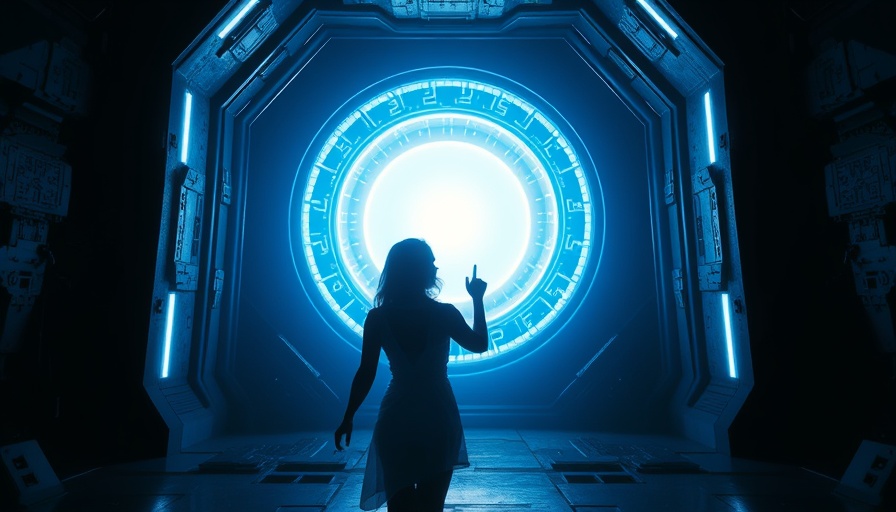
Rediscovering the Golden Age of Sci-Fi Television
The 1950s marked the pinnacle of television entertainment, a period when the small screen began to seep into the fabric of everyday life. As households across America plugged into this new medium, a cultural phenomenon was born: the sci-fi television series. Fueled by post-war optimism and rapid technological advancements, this genre carved out its niche in the realm of entertainment, introducing audiences to fantastical realms and futuristic narratives.
Flash Gordon: A Galactic Venture
Long before the Star Wars saga swept through cinemas, there was Flash Gordon, a program that laid the groundwork for future sci-fi narratives. Capturing the imaginations of young viewers, Flash Gordon trotted through the cosmos with his companions, facing off against villains who embodied the era's archetypes. But what sets this series apart isn't just its flash and flair; it's the character of Dale Arden, portrayed by Irene Champlin. Dale wasn't merely a supporting character waiting to be rescued; she was a fearless scientist, trailblazing the portrayal of strong female characters in an age when such depictions were uncommon.
The Twilight Zone: Entering the Realm of the Unimaginable
Skewering societal norms and exploring human fears, The Twilight Zone, created by the visionary Rod Serling, pushed the boundaries of genre storytelling. This anthology series showcased episodes that veered from eerie and unsettling to profound and philosophical. With each episode, viewers were invited to step into a dimension where reality twisted into surrealism, reflecting the anxieties of their times through a lens of dark humor and sci-fi allegory. Classics like "To Serve Man" and "Time Enough at Last" remain essential viewing, reminding us of the series' enduring legacy and its capacity to resonate even with today's audiences.
Tom Corbett, Space Cadet: An Optimistic View of the Future
Tom Corbett, Space Cadet — a show about aspiring members of the Solar Guard training in the art of space travel — took optimism to new heights. Far removed from the prevalent tropes of doom and despair often found in other sci-fi narratives, this series celebrated the potential of youth, teamwork, and innovation. Its portrayal of a hopeful future stands in stark contrast to the darker narratives that sometimes hijack modern storytelling. Viewers were encouraged to embrace technology as a tool for betterment, a relevant theme that echoes in today's drive for science and exploration.
Why 1950s Sci-Fi TV Shows Matter Today
As we fast-forward into our current era, the influence of these pioneering shows is unmistakable. The imaginative landscapes and bold narratives create a foundation upon which newer series have built their legacies. In an age where streaming services continuously recycle established franchises, going back to these original series can reveal a raw creativity and heart that tends to get lost in the high-budget special effects of today. Furthermore, they serve as a reminder of the thematic complexities that can be embedded within a seemingly simple sci-fi narrative.
The Cultural Impact of Sci-Fi in Modern Context
The stories told through these 1950s classics still resonate with us today. They challenge viewers to confront their assumptions, fear of the unknown, and the moral ambiguities of technology. In an era where innovation poses new ethical dilemmas — whether regarding artificial intelligence or space exploration — revisiting these shows can inspire independent thought and nuanced discussions surrounding our current scientific and social reality. Sci-fi has always excelled at asking the tough questions, acting as a mirror reflecting society back at itself.
Actionable Insights for the Modern Viewer
For those looking to experience the thrilling adventures of yesteryear, diving into these groundbreaking series is a fantastic starting point. Platforms such as streaming services and online archives provide access to these vintage gems, generating discussions around their relevance in contemporary culture. As viewers, we can gain valuable insights into our current societal challenges and amplify the voices and representations that have traditionally been sidelined. Watching these shows encourages a broader dialogue about how fiction shapes our understanding of reality — a conversation that is more necessary than ever as we navigate the complexities of modern life.
 Add Row
Add Row  Add
Add 




Write A Comment